When it comes to estate disputes, it can be difficult to know what to do and how to proceed. Estate disputes are complex and require careful consideration, as the outcome can have a major impact on the estate and its beneficiaries. Estate disputes can arise for a variety of reasons, such as disagreements over the estate’s assets, the validity of a will, or the distribution of assets. They can be emotionally charged and challenging to resolve.
Here is a list of the most common estate disputes and what you can do:
1 – Debts Incurred by the Deceased before Death
If the deceased had outstanding debts when they passed away, these must be paid off before any assets are distributed to the beneficiaries. If the estate is unable to cover the debts, the creditors may file a claim against the estate to try to recover the money.
2 – Challenges to a Will or Trust
If a beneficiary or other interested party believes that a will or trust is invalid, they may challenge it in court. Challenges to a will or trust may be based on a variety of issues, including lack of capacity, fraud, duress, or undue influence.
3 – Challenges to the Validity of a Power of Attorney
A power of attorney is a legal document that gives someone the power to act on another person’s behalf. If a beneficiary or other interested party believes that the power of attorney is invalid, they may challenge it in court. Challenges to a power of attorney may be based on a variety of issues, including lack of capacity, fraud, duress, or undue influence.
4 – Disputes Over the Distribution of Assets
If beneficiaries disagree over the distribution of assets, they may file a claim against the estate. This may be based on a variety of issues, such as the interpretation of the will, the value of the assets, or the fairness of the distribution.
5 – Challenges to the Appointment of a Personal Representative
A personal representative is a person responsible for managing the estate and carrying out the wishes of the deceased. If a beneficiary or other interested party believes that the personal representative is not qualified or is not acting in the best interests of the estate, they may challenge the appointment in court.
6 – Challenges to the Validity of Estate Accounts
Estate accounts are used to manage the assets of the estate. If a beneficiary or other interested party believes that the estate accounts are invalid or inaccurate, they may challenge them in court.
What You Can Do
If you or someone you know is involved in an estate dispute, it is important to seek legal advice from an experienced estate attorney. An experienced attorney can help you understand your rights, determine the best course of action, and protect your interests.
Conclusion
In short, estate disputes can be a difficult and stressful situation to face. It’s important to seek the advice of an experienced attorney to understand the complexities of the law and to determine the best course of action to take. In addition, it is equally important to remain organized and to keep detailed records of any communication that is exchanged between parties. The right attorney can help you reach a successful resolution to the estate dispute and help protect your rights.
If you are looking for an estate lawyer in Abbotsford, come to Pathfinder Law. We offer a range of different legal services, including civil litigation, family law, construction law and builders liens, employment law, wills and estates, and business law services.


